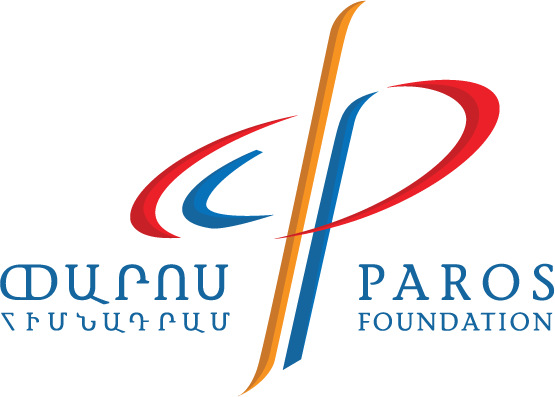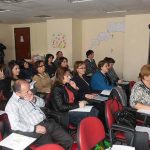Get to Work!
Description
The Homeland Development Initiative Foundation (HDIF), founded in March 2013, is the structured and legal entity born of the Homeland Handicrafts project, which was started by HDIF Founder, Timothy Straight. Under our charter, HDIF works to initiate, facilitate, and nurture sustainable economic opportunities in rural and disenfranchised regions of Armenia.
Rural regions of Armenia are most severely facing the daunting problem of un- and underemployment. Due to the lack of sustainable income and limited access to skills development, a majority of men leave their wives and children in Armenia to seek work in Russia. Armenia has lost some 40% of its population to migration. The current economic structure of Armenian daily life in these regions is largely funded via the remittances sent by migrant workers. Those remaining in Armenia (mostly women) lack the opportunity and ability to meet basic needs for themselves and their families; with no way to control their sustenance, they completely depend on others for money. The Homeland Handicrafts project aims to address this issue by creating market opportunities for villager women to sell their handicrafts. Building on this foundation, HDIF’s work goes beyond providing a market for the sale of handicrafts; concentrating on empowering these women by endowing them with the education and necessary skills to be successful not only as independent business entities, but also in other spheres of life.
HDIF works towards creating and supporting sustainable independent business entities among our producers. We see training seminars as a vehicle to attaining the goal of sustainable producer independence. HDIF will work towards this goal by facilitating and leading seminars and workshops as the basic building blocks upon which to build up the needed knowledge. These workshops will cover a wide variety of topics associated with best business practices in a globally competitive climate. Again, the point is not only to pass on valuable information necessary to operate small businesses, but also to empower women (who are the most disenfranchised social group) in their daily life. We see this as HDIF’s primary role and one that has no time limitation or definite end. Addressing the need for such a program, as you can imagine, is not a cheap task to undertake; we are actively seeking funding to enable us to continue doing the work that is so necessary for the development of Armenia.
We intend to hold training workshops that will set the precedent and establish the standard for the development sector in Armenia. The first training workshop will introduce the women to the tax and registration structure in Armenia and the importance and process of registering as legal tax entities. This issue alone is complicated and information is not readily accessible to the public. Operating within the legal legislative and taxation framework is not the norm in Armenia; many business transactions continue to take place ‘under-the-table’. The ambiguity of tax laws and regulations and the lack of clear and accessible information, taken with the cultural aversion to conducting business ‘by-the-book’, means that the majority of economic activity is not regulated in any way. To spur economic development in Armenia, Western taxation and registration policies must be adopted. We aim to tackle this issue aggressively by establishing the standard of registered business operation within the Armenian legal framework. Future sessions will similarly endeavor to impart Western business practices in topics such as organizational structure, procedures for orders, production, delivery and payment, inventory and quality control, website and social media, designing for market needs, branding, budgeting, investing and micro-lending, grant writing and funding, scaleability, progress reporting, and more.
Seminars will be conducted as full-day intensive workshops once a month and will follow a general outline. To be equally accessible to all our producers, we will be holding training workshops in Yerevan. This means arranging for transportation of our producers from and to their individual regions and providing over-night accommodations to those for whom distance does not allow a one-day trip. We will also provide water and dinner at the seminar. Thankfully, we have a partner in Yerevan who will provide a conference facility free of charge in which we may conduct our workshops. Consultants in the field of the seminar topic will work intensively with HDIF to create supplemental reference materials for each workshop as well as a ‘lesson plan’ for the seminar itself. As both The Paros Foundation and AIWA propose the recording and dissemination of videos of our training sessions, we believe that HDIF can expand its reach of influence to a broader audience. Along these lines, we’d like to provide reference material not only tailored to the specific needs of our producer groups, but also to the broader needs of the Armenian people. The written materials will together make a handbook that, combined with videos of seminars, will serve the need for accessible and country-specific information and resources in Armenia. Because of the absolute lack in such resources, HDIF strongly believes in filling this gap to the best of our abilities and with the absolute best information. We see the seminars and reference materials that we will provide to become the standard and serve all interested parties across Armenia.
The seminar participants will largely depend on the topic of the workshop. HDIF will strongly encourage the following four people from each organization participate in all seminars: the President of each partner organization, the Head of Handicrafts, the project’s Accountant, and the corresponding Peace Corp Volunteer. In addition to these specified people, we will invite attendees who show initiative and commitment in their respective producer groups. HDIF will work with the administrators of each producer group to identify and target leaders and teachers within our projects who will eventually be able to continue passing on learned information to their cohorts. Producer individuals will be able to volunteer to attend any workshop and we will be as accommodating as possible to ensure all interested parties are able to participate. Subsequent workshops will target those who are specifically inclined and affected by the seminar theme. For example, web savvy individuals for the social media and marketing seminar, detail-oriented seamstresses for quality control workshops, and those who exhibit leadership qualities and communication skills for organizational structure seminars. By identifying individuals with strengths in particular topics and encouraging their participation, we will create a diversified and specialized work force within our producer groups with each individual being a vital part of the whole. We would ideally like to integrate interested parties from outside the HDIF producer groups who will benefit from the skills and knowledge provided by the seminars. As with our producers, we would publicly invite interested parties to apply for seminar attendance space. Because an increase in attendees would translate to higher costs, we would either need to incorporate that in our budget or look for other ways to subsidize the costs associated with outsider participation.
Seminar participants will be expected to implement learned skills in daily operations. Each seminar will present the goals of the trainings and elucidate the tasks required to achieve those goals. Following the first seminar on taxation, all producers under the HDIF umbrella who are not already registered as tax-paying entities will be required to do so. Other subjects to be covered include preparation of proper invoices, timely and consistent delivery, keeping accurate inventory counts, and more. With each month and each training seminar, our participants will be acquiring the skills necessary to operate as independent and sustainable units. Over time, as they obtain the tools needed to work in the regional and global competitive business climate, they will become increasingly more independent from HDIF and other organizations.
Each training session will build on the last to create a strong and cohesive unit of producer individuals and groups who are all on the same page with HDIF and the legal and business frameworks nationally and globally. As the groups are exposed to more training through HDIF’s process, business practices will improve to reflect the new skill sets. Information and knowledge dissemination and practical application of learned skills will be the primary measure of HDIF seminar’s effect on participants. Knowledge and implementation of concepts such as taxation, invoicing, quality control, organizational structure, etc. will enable and encourage producer groups to move away from the culturally accepted practice of ‘under-the-table’ or ‘black market’ economic activity and towards operations within the legal framework of the Republic of Armenia. By creating this kind of business climate in Armenia, our producers will set the standard for thriving and independent organizations. Additional benefits of the creation of a network among HDIF producers and among the Armenian community that works together learning from one another and teaching each other as a whole is a hugely important byproduct of organizing like-minded individuals. Networks are vital for success as cohesive groups can have a more immediate and more influential impact. Encouraging disenfranchised groups and opening the eyes and minds of citizens to possibilities that do exist and can be utilized will generate a ‘yes-we-can’ attitude that will work toward civic engagement and paint a favourable picture for investment. All of these outcomes are equally important and beneficial and will generate as a direct result of the economic, social, and community investment in training seminars.
The success of the seminars initiative by HDIF will immediately be visible and measurable through the day-to-day activities of our organization. For example, currently a majority of our producers do not know how to create a proper invoice, register inventory, perform under deadlines, and ensure consistency of production. HDIF undertakes all of these issues as well as many other ones. Seminars will set the standard at which all will be held to; and with each new learned skill, producers will take on new responsibilities.
HDIF’s broad-scope goal is the initiation, facilitation, and nurturing of sustainable economic development initiatives in Armenia. A tangible benchmark we are striving for is the creation of 1,000 employment opportunities within five years. Seminars serve as the fundamental foundation, upon which many avenues through which this goal can be attained are built. While traditional handicrafts creation and sale is a main vein, opportunities in tourism and events such as festivals also provide a rich opportunity for sustainable economic ventures.
The promotion and support of a ‘small-scale’ tourism sector (of which festivals are one part of) will expand the scope of influence to many more people, particularly those in the oft-forgotten and ignored areas of Armenia. The potential is great to provide an economic and moral boost to these areas and so is the need. The direct impact of handicrafts jobs will be magnified to include other job opportunities such as tour guides, bed and breakfast providers, cafes and restaurants, other craftspeople such as beekeepers, farmers, and those teaching visitors how to dance, make traditional regional Armenian food, activity providers such as hiking, bike riding, horseback riding, and more.
The creation and presentation of educational seminars will be of great use for all different sectors, which can be utilized in building Armenia as a sustainable economy. HDIF’s approach echoes the famous Silk Road- just as the silk road was comprised of many small points that together created the hugely successful and necessary route, so do we see the importance of all the sectors of influence (including handicrafts production and sales, festival events, and general tour packages) to build upon a solid and exemplary foundation of knowledge and business skills in order to create a strong and viable Armenian economy.
Region
City / Village
Start Date
End Date
Thank you to all our donors, we have met our fundraising goal.
The Need
Short Term Impact
Long Term Impact
Sponsors Benefits

Armenian International Women's Association-San Francisco Affiliate
Pleasanton, CA February 14, 2013
Armenian International Women's Association-San Francisco Affiliate
Pleasanton, CA February 14, 2013The seminar took place and was well attended and very informational.


